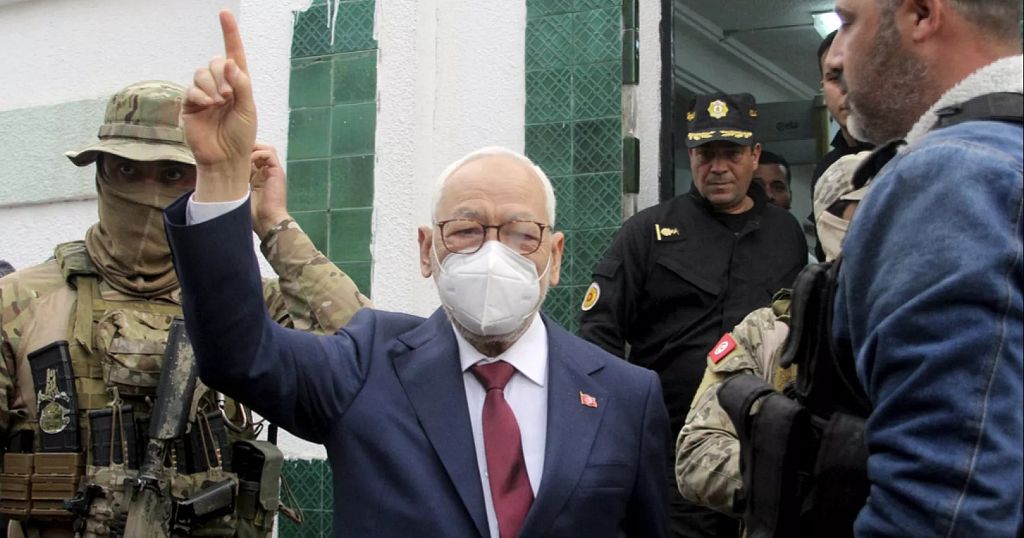Tunisian Court Hands Down 14-Year Prison Sentence to Opposition Leader
In a move that has sent shockwaves through the Tunisian political landscape, a court in the North African country has sentenced one of its most prominent opposition leaders, Rached Ghannouchi, to 14 years in prison. This latest verdict is the culmination of a sweeping case in which politicians were accused of conspiring against state security, and it adds to a string of convictions Ghannouchi has received in other cases. Ghannouchi, the leader of Tunisia’s Ennahda movement, was not alone in his sentencing; several other detained members of his party received 12-year prison terms.
Ghannouchi’s rise to prominence began after Tunisia’s historic role in the Arab Spring, where it became the first country in the region to oust a longtime dictator. Following this pivotal moment, Ghannouchi’s party rose to power, and he later served as the speaker of the country’s assembly. However, since President Kais Saied took power six years ago, Ghannouchi has been among the opposition figures facing prosecution. The defence team for Ghannouchi has denied all charges, stating that the trial proceedings did not meet the standards of a fair trial. In a statement, attorneys highlighted that “all accusations were based on a false and contradictory testimony by a secret, anonymous witness who failed to present any evidence for his baseless and contradictory allegations, and who ultimately retracted most of them.”
The case against Ghannouchi and other members of his party includes serious charges such as participating in an organisation linked to terrorist acts, inciting violence, attempting to overthrow the government, and recruiting and training individuals for terrorist purposes both within Tunisia and abroad. The judge overseeing the case took the additional step of issuing arrest warrants for several party members tried in absentia, including Ghannouchi’s son and a former foreign minister. Ghannouchi, who is 86 years old, faces charges in several other cases and has refused to appear before courts, citing political manipulation. He has already served multiple prison sentences totalling more than 20 years, notably for money laundering.
His lawyers have denounced the legal actions against him and other Islamist leaders as “unjustified judicial harassment” by the authorities, calling for their release. This sentencing comes at a critical moment for Tunisia, a country that has been navigating complex political and social changes since the Arab Spring. The international community is watching closely, as the prosecution of opposition leaders raises concerns about political freedoms and the rule of law in the country. As Tunisia continues on its path of political evolution, the outcomes of such legal proceedings will undoubtedly play a significant role in shaping its future.
